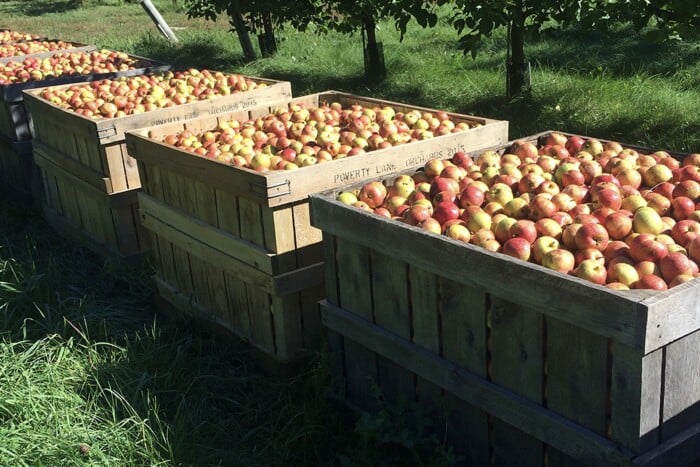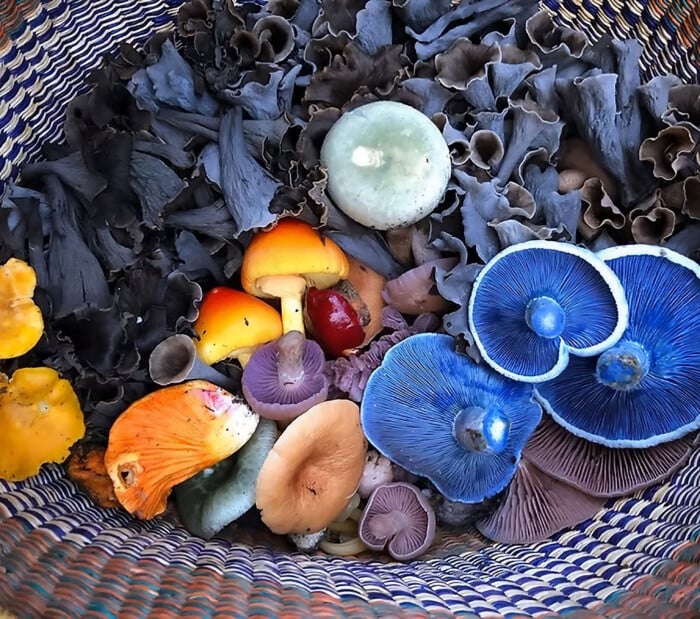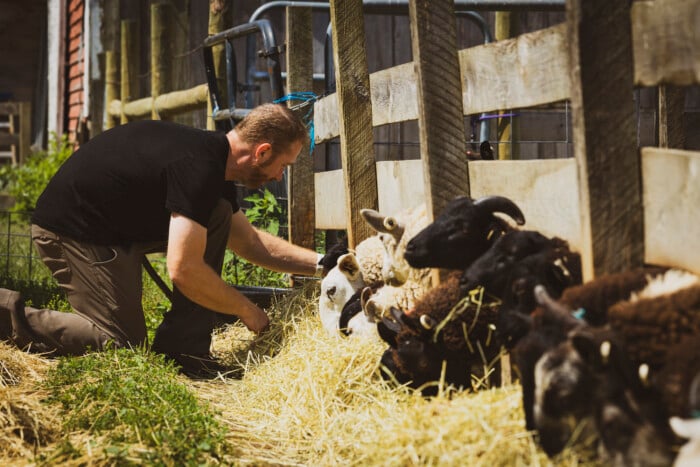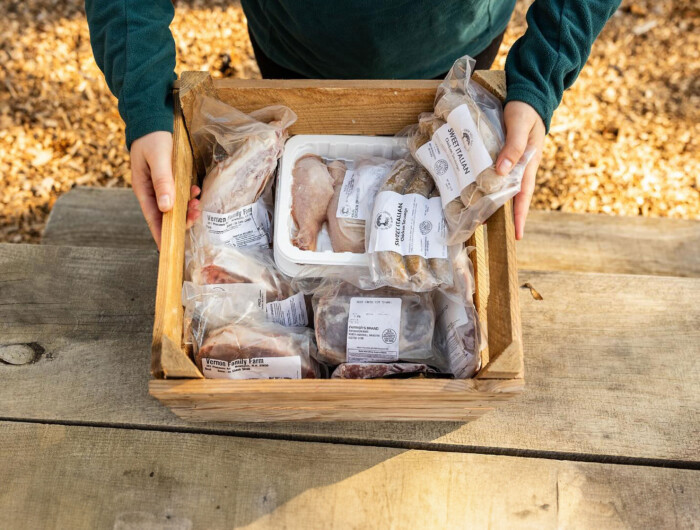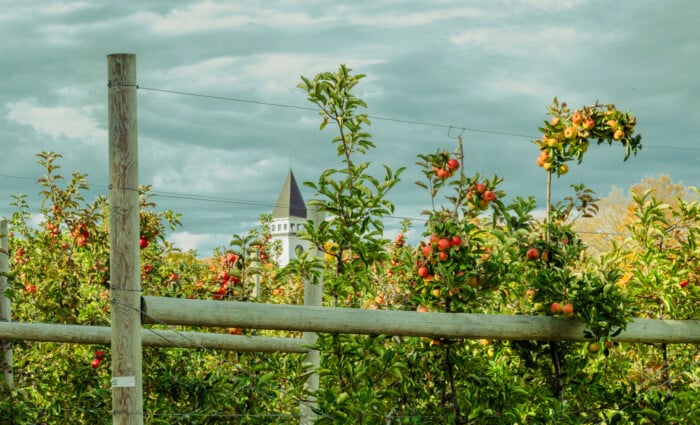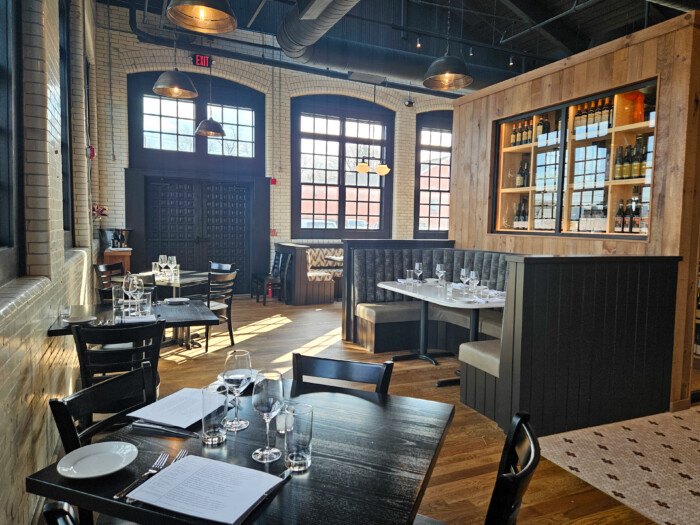Granite State Growers: Miles Smith Farm
New Hampshire farmers share stories of tradition and innovation
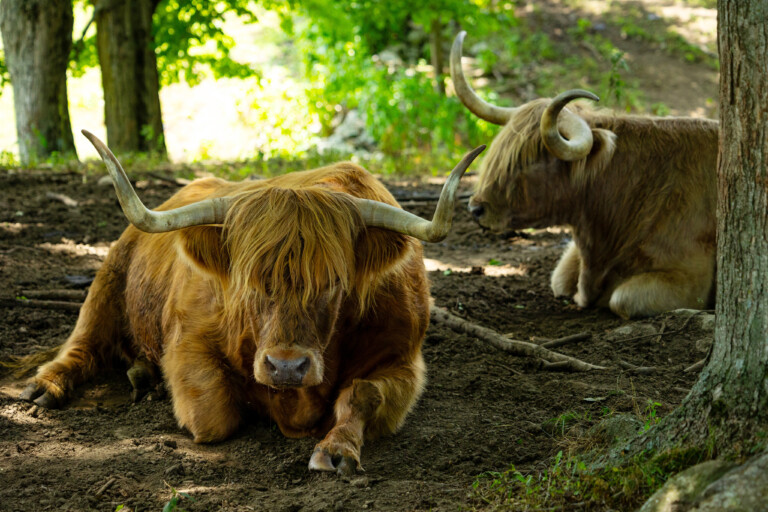
It’s no surprise that agritourism is on the rise in New Hampshire, because fall is all about farms. From leaf peepers pulling over on the Kancamagus for a piping hot cup of apple cider, to teenagers running through flashlight corn mazes and pick-your-own apples galore, the state comes alive every fall as tourists and Granite Staters alike flock to local farms. New Hampshire’s local farms are the backbone of our communities, and many of them offer unique and interesting experiences that are as fresh as their produce; with the hope that visitors will stop by and stay a while, and then keep coming back.
Here’s a look at some of New Hampshire’s fabulous farms:
Miles Smith Farm, Loudon (profile below)
Moulton Farm, Meredith
Brookford Farm, Canterbury
LaValley Farms, Hooksett
Brookdale Fruit Farm, Hollis
Vernon Family Farm, Newfields
Miles Smith Farm, Loudon
In 2005, Bruce Dawson and Carole Soule sought a change from the high-stakes corporate world in which they lived and worked.
Surprisingly, Miles Smith Farm, a 26-acre primarily grass-fed beef farm in Loudon, was the answer.
It turns out that job satisfaction and happiness can come in many forms.
“I switched, because the stress is not as bad in farming as it was in the IT world. I think Carol just simply got tired of working in corporate America,” Dawson says.
Since making that life-changing decision nearly 20 years ago, the couple have continued the traditions and work ethic started by the farm’s namesake. They’re continuing the work started by Miles Smith, who first tilled the land as early as the 1830s. Smith, a stone mason, helped provide food for Shakers living nearby.
“We sort of took a chapter out of his book and made a farm similar to what he was doing, although he ended up doing crops, mostly potatoes. He had some beef cows, but we decided to continue with the beef because they’re very good at keeping the weeds mowed,” Dawson says.
Smith was also a hog reeve, a fancy, yet old-fashioned name for someone who evaluates damages done to crops by stray pigs, then finds ways to contain the wayward swine. Amazingly, it’s still an elected office in some New Hampshire townships. Several years ago, Grantham famously appointed a newlywed couple to the esteemed job.
While there are no hog reeves at Miles Smith Farm, there is a mischievous little pig that roams the property. Tazzy may be one of the state’s most popular mascots. A miniature pig, Tazzy often makes headlines for its gallivanting, freewheeling nature. Carol brings Tazzy with her to political events around the region.
“She’s been around a lot; she’s been in the news a fair amount. Whenever there’s a political event going on, like in Manchester, you’ll see Tazzy and Carole down there,” Dawson says.
When Soule is not on the road, she’s working at the farm and documenting daily activities at the petting zoo, where they have chickens, horses, sheep, goats and more.
The farm’s website reiterates the health benefits of eating their grass-fed, locally raised beef and pork, which live in open environments. This beef has no hormones or antibiotics, and the farm is GMO-free. Besides raising grass-fed cattle, they also sell pastured pork and poultry, eggs and maple syrup, and partner with many local and New England-based food vendors.
Shoppers can browse the farm’s website according to preference: There are gluten-free and nitrite/nitrate-free options, for example. Choose from a wide variety of meat, like pork belly, pork kielbasa, pork chops; grass-fed burger patties and beef bones, even Delmonico steak; and plenty more. And stocking up your freezer by buying in bulk can keep costs down, they suggest.
There are two types of cattle at the farm: Scottish Highlander, known for their hairy coats and lengthy horns and for being a durable breed, Dawson says; and Belted Galloway, “which have long flowing hair, if you will, in the wintertime.” Belted Galloway are known as Oreo cows, so named for the alternating white and black segments on their bodies.
Dawson and Soule take pride in their cattle, and make sure to treat them humanely, including naming each cow that arrives on the farm. Dobby D is a reddish-brown, mini–Scottish Highland bull calf for sale, and Crackle sports a silvery mane. June Bug is a friendly 6-year-old cow just waiting to be loved.
“The people who buy our live animals, buy them for a number of reasons. Obviously, the backup is so that they can, ‘well if all else fails, they’ll always have some meat,’ but they buy them for everything from lawn ornaments to animals for their kids to train. They just want an animal to go around and mow their lawns,” Dawson says.
Kids, on the other hand, might say “ew” and “yuck” when they hear they’re about to take care of a Scottish Highland cow, but those expressions soon turn to “ooohs” and ahhhs” as they proudly show off the cattle they’ve been taking care of all week as part of “Cow Camp.” It’s an intense 4-H experience for kids that’s now an annual event here.
Participants can spend a week getting to know the likes and dislikes of their very own calf, and learn how taking care of an animal can instill in them self-confidence and responsibility.
Camp activities include playing farm games, brushing, snuggling and scooping the cows, learning about their family members, running with their new best buddy, and writing in their journals about their adventures together. Once they get past the gross factor of scooping, Dawson says, kids are able to take the necessary task in stride.
On the last day of Cow Camp, the children hold a “calf show” and costume contest to show off what they’ve learned about caring for these gentle creatures. “Every kid should spend time like this on a farm,” writes Carole Soule in a blog post about this year’s camp. milessmithfarm.com



